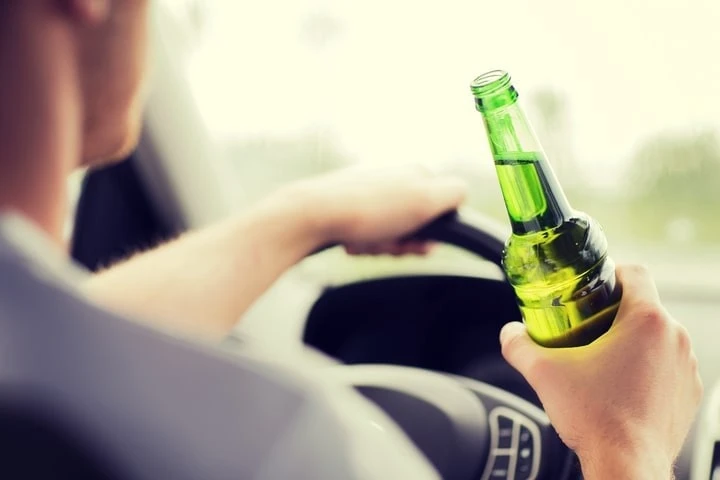
Like other states, Texas imposes significant penalties for individuals convicted of drunk driving. Texas defines driving while intoxicated (DWI) as a person operating a vehicle:
- Lacking the normal use of mental or physical facilities due to drug or alcohol use, or
- With a blood alcohol concentration (BAC) at or above 0.08%.
A Texas DWI charge can be considered a misdemeanor or a felony, depending on the circumstances of the conviction. For instance, someone receiving their 3rd DWI in Texas will likely face stiffer penalties than someone receiving their first DWI.
When the State charges you with a crime, it is never a good idea to attempt to navigate the criminal system alone or with an inexperienced and unprepared attorney.
There is simply too much at stake. So when you or your family is facing a DWI or other criminal charge, contact a San Antonio criminal defense lawyer at Austin Hagee Law Firm who can walk you through the process and defend your rights along the way.
We have the experience from handling hundreds of cases as prosecutors and defense attorneys, and we have secured dismissals and case reductions for many clients charged with DWI. We are here to use our experience to help you.
What Is the Typical Punishment for a 3rd DWI in Texas?
A third DWI in Texas is a third-degree felony punishable by up to $10,000 in fines, 2 to 10 years in prison, and a license suspension of up to two years. Courts also require an Ignition Interlock Device, and convictions create a permanent felony record with loss of voting and firearm rights.
Additional consequences of a third DWI may include:
- Mandatory installation of an ignition interlock device
- Increased car insurance premiums
- Loss of gun ownership rights
- Disqualification from professional licenses
- Immigration consequences
- Difficulty securing employment, loans, or housing
A third DWI conviction carries lifelong consequences. Speak with a Texas DWI attorney immediately to protect your record and rights.
When Do I Need a Texas DWI Lawyer?
It is best to hire a Texas DWI lawyer as soon after your arrest as possible. Having your attorney by your side early can help the outcome of your case.
Your attorney can start requesting the police report, getting body camera footage, and obtaining any other information police gathered during the stop.
A Texas DWI lawyer can investigate the tests that were performed to secure your arrest and make sure they were administered properly.
Additionally, a hired Texas DWI lawyer will examine the equipment used to measure your blood alcohol concentration and confirm that it was used properly and was calibrated to provide accurate results.
The sooner we can begin analyzing your case, including how the police stopped you, how they conducted their investigation, and whether they administered any tests properly—the sooner we can strategize a strong defense.
Contact Austin Hagee Law Firm to schedule an appointment with a qualified criminal defense attorney.
What Is a Third-Degree DWI?
When charged with a 3rd DWI in Texas, the consequences are severe. It is classified as a third-degree felony, potentially leading to up to 10 years of imprisonment. Alternatively, if probation is granted, a minimum of 10 days in jail is mandatory.
A first-time DWI in Texas is typically a Class B misdemeanor. However, a first DWI charge can rise to the level of a third-degree felony if the driver’s intoxication caused a crash resulting in serious bodily injury to another person.
Additionally, a 3rd DWI in Texas after two prior DWI convictions is considered a third-degree felony.
For a 3rd DWI offense in Texas, bail is determined by a magistrate judge, who considers factors like community safety and court appearance likelihood. Typically, the bond for a Third Degree Felony, such as a 3rd DWI, ranges from $10,000.00 to $20,000.00 or more.
What Is the Penalty for a 3rd DWI in Texas?
A third-degree felony in Texas carries the possibility of between two and ten years in prison and a fine of up to $10,000.
For a third or more Driving While Intoxicated (DWI) offense, you may face:
- Driver’s license suspension for up to 2 years after serving your sentence.
- Up to 10 years in prison.
- At least 10 days in jail if granted probation.
- Fines up to $10,000.
After a plea, you are responsible for court costs associated with your case that can amount to hundreds of dollars. Additionally, you may be required to keep an ignition interlock device on your vehicle for up to ten years.
A DWI conviction can permanently tarnish your reputation, limit your ability to secure employment, and disqualify you from certain housing opportunities.
Don’t let this happen to you without finding an attorney that will bring a strong defense on your behalf.
Will I Lose My Driver’s License After a 3rd DWI in Texas?
You must request an administrative license revocation hearing through the Texas Department of Public Safety if you want to keep your driver’s license after a DWI arrest.
If you fail to request the hearing within 15 days of your arrest, you will lose your driver’s license for a statutorily determined number of days—usually between one and two years for a third-DWI conviction.
If you receive a second or subsequent DWI conviction within five years of a previous one, you must automatically install an ignition interlock device (IID) on your vehicle while on bond.
An ignition interlock device is a portable breathalyzer that is wired into the ignition system of a vehicle. The driver must blow into the IID to start the vehicle.
If the driver’s breath contains any concentration of alcohol, the vehicle will not start, and the device will register a failed test.
Not only is an IID inconvenient, but you must pay for the installation and fees associated with the device. These expenses can easily add up to thousands of dollars.
Losing your driver’s license can affect your livelihood as well as your ability to commute with a Texas Driver’s License. Contact our office today to see how a member of our team can help.
Is a 3rd DWI in Texas the same as a Third-Degree Felony DWI?
Yes, a 3rd DWI in Texas is also considered a third-degree felony. However, a third-DUI conviction is not the only DWI charge that can rise to the level of a third-degree felony.
Certain DWI charges can become a third-degree felony even if the accused does not have a prior conviction (e.g. Intoxication Assault or Intoxication Manslaughter).
Defenses to DWI Charges in Texas
In some cases, a legal defense can defeat an element of the offense and influence the prosecutor to reduce or dismiss your charges.
The prosecutor needs to prove that you were operating the vehicle while under the influence of drugs or alcohol. Legal defenses that may apply to DWI charges include:
- Another person was driving the car,
- Your blood or breath sample was taken incorrectly,
- The officer lacked reasonable suspicion to pull you over,
- The officer lacked sufficient objective probable cause to arrest, or
- Your blood or breath test results are unreliable due to improper machine maintenance, calibration, or other error.
Our DWI lawyers in San Antonio will examine your case facts and negotiate with the prosecutor to get your charges reduced or dismissed, if possible.
However, legal defenses do not apply to every DWI case. Contact our office today, so a member of our team can review the details of your arrest and talk to you about case strategy.
See what our clients have to say about our services:
What Should I Look for in a DWI Attorney?
Tens of thousands of attorneys advertise their legal services throughout Texas, and selecting the right one to represent you can seem overwhelming. Some traits you should look for in a qualified DWI attorney include the following:
- Experience handling DWI cases as both a prosecutor and defense attorney,
- A record of success in securing DWI dismissals and favorable DWI plea options,
- In-depth knowledge of Texas DWI laws and penalties,
- Familiarity in navigating administrative license revocation hearings, and
- Approachability.
Your DWI attorney can mean the difference between spending time in jail and getting your charges reduced or dismissed.
When your liberty is at stake, you cannot afford to hire someone who is inexperienced, too busy to call you back, or otherwise unprepared to handle your case.
Facing your 3rd DWI in Texas? Contact Austin Hagee Law Firm Today to Discuss Your Options
We know that not everyone facing a 3rd-DWI charge is guilty of the crime. Our criminal defense lawyers at Austin Hagee Law Firm have over a decade of combined experience helping individuals facing DWI charges.
With prior experience as district attorneys, we know how prosecutors think and what they look for when strategizing how to secure convictions. Our team can review the details of your case and determine if a legal defense applies.
If you are facing a 3rd-DWI charge in Texas, contact our team at Austin Hagee Law Firm today. You can also call us at 210-903-7769.
Where to find our San Antonio, TX office:
